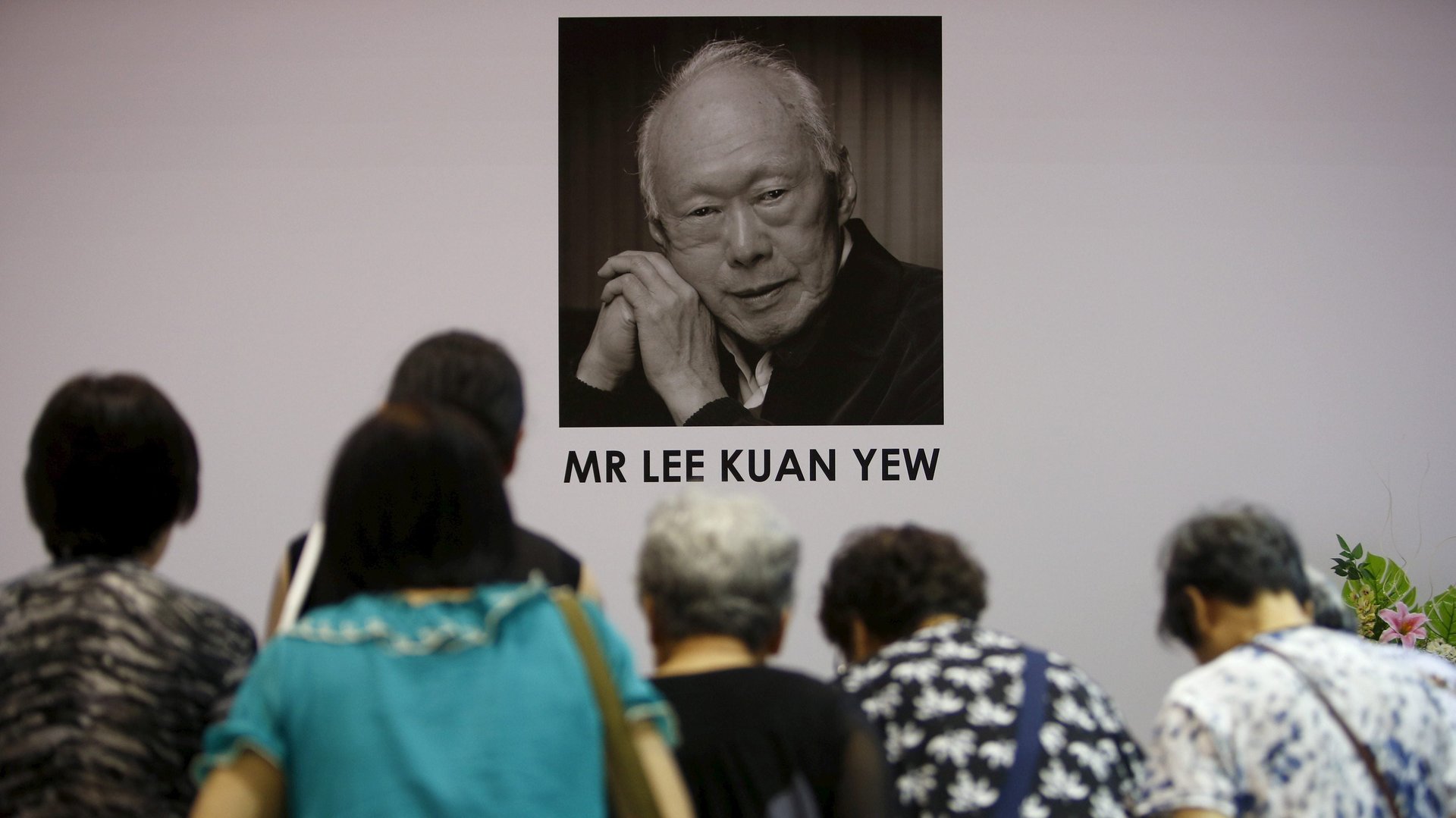150 years of data proves it: Strongmen are bad for the economy
As governments around the world gravitate toward rightwing populist and authoritarian leaders, many have pointed to the 2008 global recession and the economic hardship that followed as the reason.


As governments around the world gravitate toward rightwing populist and authoritarian leaders, many have pointed to the 2008 global recession and the economic hardship that followed as the reason.
Take America, for instance: According to many analysts, the rise of US president Donald Trump has to be seen in relation to the great recession, and was aided by a frustrated working and middle class that saw in his election the promise of new economic wellbeing.
This repeats a historical pattern: When facing dire straits, populations tend to delegate responsibility and look for a leader who can (or at least promise to) get them back to better times.
It’s a bad idea, however, and not just for democracy: It’s terrible for the economy, too.
A study by researchers of the Royal Melbourne Institute of Technology and Victoria University in Melbourne published in Leadership Quarterly looked at economic data in relation to the performances of authoritarian leaders versus democratic governments.
The authors analyzed the governments of 133 countries between 1858 to 2010, and found that autocrats were either damaging or inconsequential for the economy of their countries. Besides showing the poor economic outcomes of oppressive regimes, the study calls into question the idea of “benevolent dictators”—for instance Singapore’s Lee Kuan Yew or Rwanda’s Paul Kagame—who are commonly believed to be good for the economy.
“Autocrats with positive effects are found at best as frequently as predicted by chance, while autocrats with negative effects are found in abundance,” wrote Stephanie Rizio and Ahmed Skali, the authors of the paper. Strongmen mostly leave a county’s economy worse than they found it, or simply “ride the wave” of an economic growth that would have happened regardless of their rule.
The researchers used data from the Archigos dataset of leaders, which lists both the leaders of countries and the person with the most power in a country at any given time. The official head of state might sometimes be no more than a figurehead, while someone else holds the actual power. For instance, the paper notes that Septimus Rameau was the de-facto ruler of Haiti between 1874 and 1876, while his uncle Michel Domingue was the official leader; or Ziaur Rahman, who was actually in charge of Bangladesh between 1975 and 1977, while Abu Sadat Mohammad Sayem was the country’s official leader.
The data was then cross-referenced with the Polity IV dataset, which establishes the kind of political government in place for 185 countries every year, defining whether the country is a democracy or an autocracy. For each year, countries are scored from 1 to 10. Scores below 6 indicate an autocratic regime, while democracies stand above six.
To analyze the economic outcome of a strongman’s rule, the researches looked at per capita GDP. The researchers then compared economic growth in countries with autocratic regimes to economic growth in democracies, looking at whether the impact of the autocrats (and the democratic leaders) was relevant—or if the results were ascribable simply to chance.
In the large majority of cases, countries led by autocrats—whether benevolent or otherwise—were found to have worse economic outcomes in terms of growth than democracies. And not just in the short term: The researchers also looked at delayed growth, testing the hypothesis that reforms put in place by a dictator might take time to bear fruit. They found no demonstrable growth to connect with autocratic rule.
Growth isn’t the only economic metric on which autocrats failed to deliver. They also fell short on employment, health and education spending, and government debt.
But—in what is possibly good news for Trump, who is facing the threat of another recession—while it seems people are inclined to vote a strongman into power to fix their economic woes, they aren’t as quick to get rid of him if the economy doesn’t improve. The paper found that while authoritarians do pay for their bad economic performances, it takes much longer for them to lose popular support and be deposed from power than they do in a democracy under comparable economic circumstances.
Skali told Quartz the research didn’t look into the relation between economic hardship and the rise of autocracies, and why distressed populations gravitate towards strongmen. But he did share a speculation: In times of hardship, primates tend to accept, and follow, the authority of an alpha male.